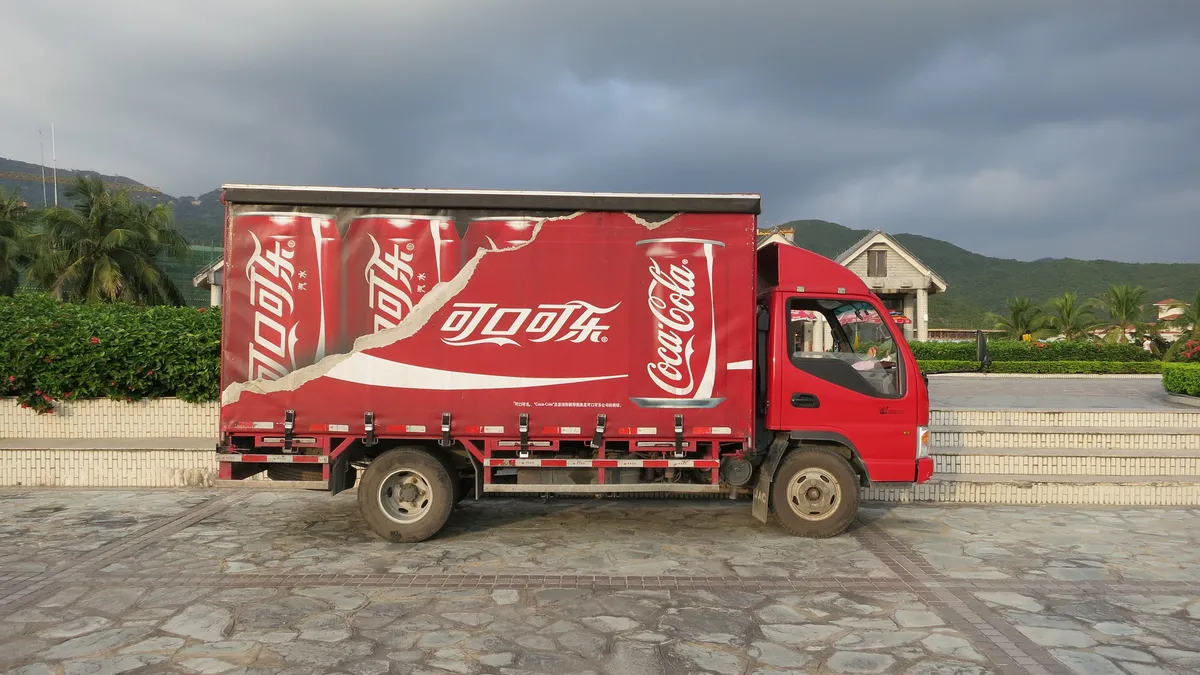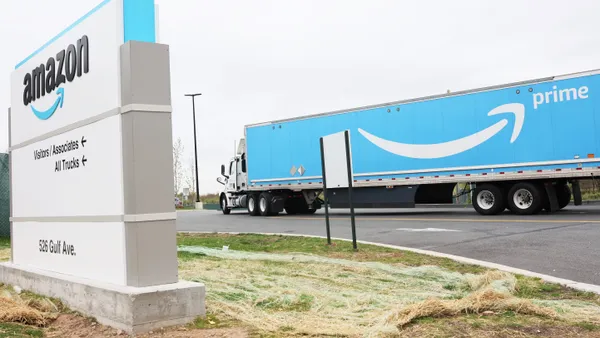Dive Brief:
- Coca-Cola is experiencing bottlenecks delaying ingredients en route to its plants as health screenings and policy changes slow some border traffic around the world, the company's CEO James Quincey said on an earnings call Tuesday. The CEO did not specify which countries are seeing the longest delays.
- "There's been a lot of pressure at the borders, whether it's the provincial – province-to-province borders in some countries or country-to-country borders in other parts of the world moving some of the ingredients that are basically shipped around the world," Quincey said.
- In some cases, to minimize delays, Coca-Cola is swapping out drivers at border crossings to keep supply chains moving, Quincey said. Health screening policies for truck drivers crossing borders are increasing as the number of coronavirus cases grows worldwide. Hong Kong, for example, instituted mandatory health certificate checks for drivers attempting to enter the city in early April, causing some stakeholders to question whether the policy would jeopardize food supply flows.
Dive Insight:
Coca-Cola has a famously localized supply chain, which the company calls "the Coco-Cola system." It partners with 225 bottling plants around the world, so once all the materials are in-country, bottlenecks tend to resolve.
"All our drinks are basically made locally," Quincey said. "The drinks in the U.S. are made in the U.S., the drinks in Germany are made in Germany, the drinks in Kenya are made in Kenya. And so the local supply chain is then able to work, designated as part of the food system, so an essential service to allow to run the production systems and distribution."
But some ingredients still need to cross borders and transit times have been somewhat disrupting the flow of ingredients for Coca-Cola for weeks, according to the CEO. Some supply issues have also been exacerbated by a shift in demand away from fountain drinks and toward grocery products, since restaurants and large venues are unlikely to be operating worldwide.
"Supply chain is creaking around there world. There are flashpoints where it’s getting a little harder to get ingredients through," said Quincey on CNBC in late March, citing delays at borders. To keep product flowing despite the complications, Quincey said the company would be trimming underperforming SKUs.
One month later, that work continues, he said Tuesday. Coca-Cola is "ruthlessly prioritizing to deliver on core SKUs and key brands and help customers simplify their supply chains," the CEO said. "It's going to be a question of focus."
The issue of timing ingredient deliveries has improved somewhat in the subsequent weeks. And "production facilities are largely running" after adapting workflow to accommodate stricter sanitation and safety practices for employees, he said.













